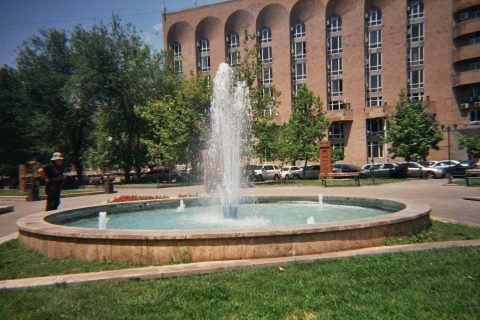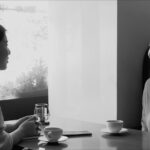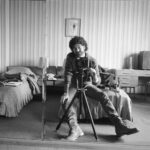Yerevan on a Wednesday night pulses with life and energy. The grand Republic Square is ablaze with the honking of car horns, hundreds of policemen milling about and the incredibly loud piped-out sounds of Andrea Bocelli singing “Time to Say Goodbye.”
The terraces, automatically sprayed with water mist to keep visitors cool, are packed at midnight, while young folks crowd around kiosks selling cold coffee and ice creams. Indian Yandex delivery drivers whizz by on their e-scooters while Armenian-Americans, perhaps visiting their homeland for the first time, argue about where they should spend the evening. Huge screens display the football, despite Armenia not even competing in the Euros, with friendly locals happy to share their enthusiasm for Arsenal, Liverpool, even Tottenham. The energy is positively palpable.
—
This energy spills over into the next day’s films, which brim with energy, the former misplaced yet intriguing, the latter directed with a quiet and powerful rage. Metafictional, experimental, playful; both use the reflexivity of metafiction to rewrite the rules of representation.
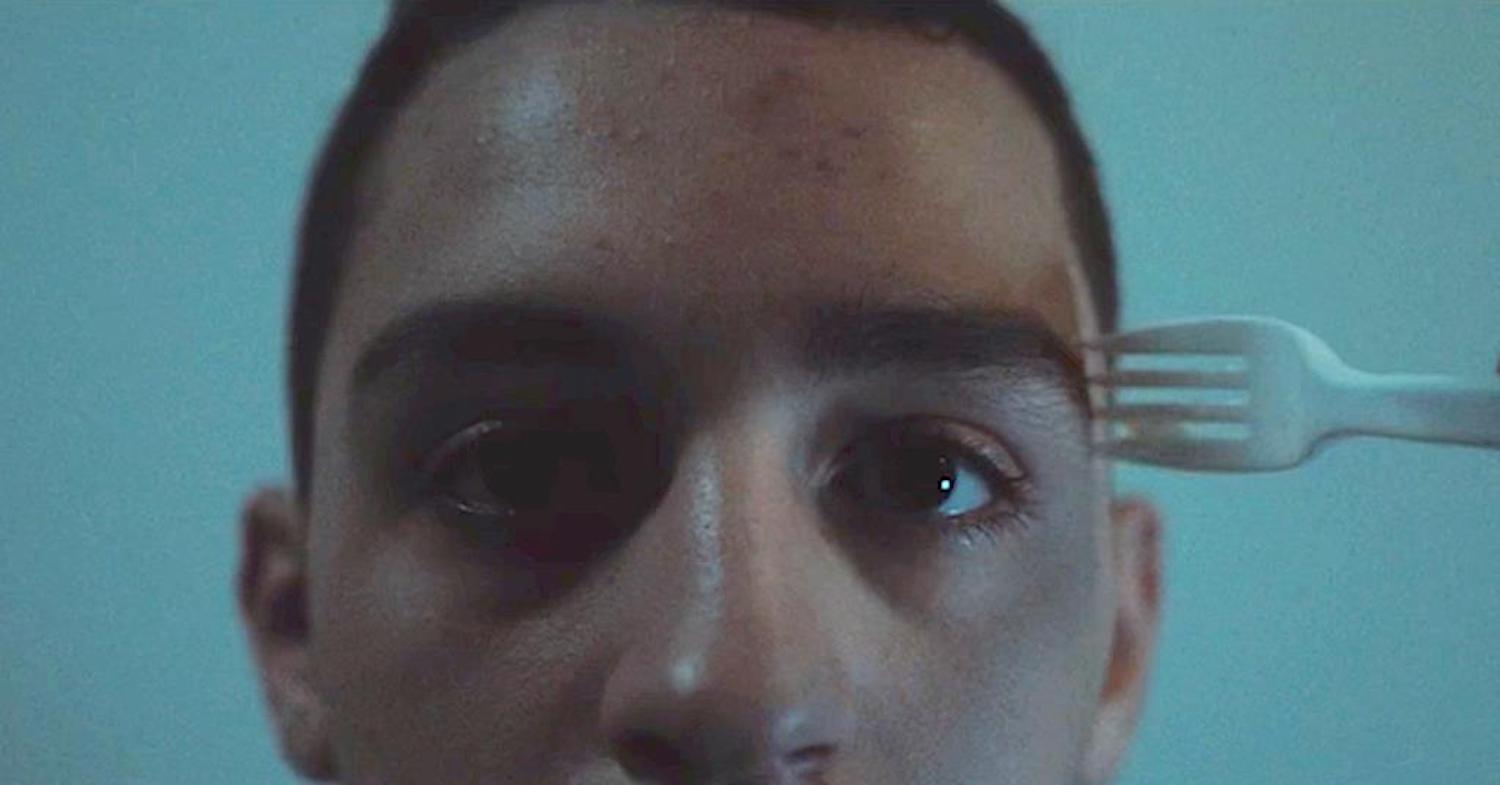
Remixing the Refugee Story
International Competition entry Xoftex (Noaz Deshe, 2024) doesn’t just mix its metaphors. It chops, dices, blends and emulsifies them, serving them up in a heady stew of bold ideas and provocations. Despite its surfeit of style and propulsive collective force, it falls short in the final execution, reaching for overwrought symbols over genuine emotional catharsis.
It takes place in a refugee camp in the north of Greece. Cargo trains rumble in the distance on their way to the Balkans. Nassar (Abdulrahman Diab) lives in a tiny container with his brother Yassin (Osama Hafiry). To pass the time, they make a zombie film on their phones. According to Nassar, refugees, waiting months and months for a hearing with the authorities, feel like zombies already; caught between a traumatic past and an unlivable future. Playful, silly and oftentimes crude, their work gives them a voice to explore their lives from their own perspective.
These are refugee lives in their full complexity, something sorely lacking in contemporary narratives of dislocation and trauma. I think of Theo Angelopoulos’ The Suspended Step of the Stork (1991) and the Albanian refugees’ quiet sadness, conveyed in endless misty tracking shots of depressed, huddled, resigned people. Instead, Deshe created the film through workshops with actual refugees, giving them a multiplicitous voice as opposed to the same single, digestible and patronising story.
Particularly effective (in the first half) is how it mixes a harsh realist tale of cramped living conditions with more surrealist elements. The hectic editing smoothly blends multiple frantic takes (including one De Palma-esque journey through various encampments), making it all feel like the same vivid and terrifying nightmare.
But soon the lines stop blurring and start crisscrossing, with talk of astrophysics, mysterious symbols, musical moments, dream sequences, graphic novel-esque aesthetics and strange conspiracy theories. Finally, the collective story gives way to Nassar’s strained singular awakening, revealing little emotional centre at the heart of this frenzied tale.
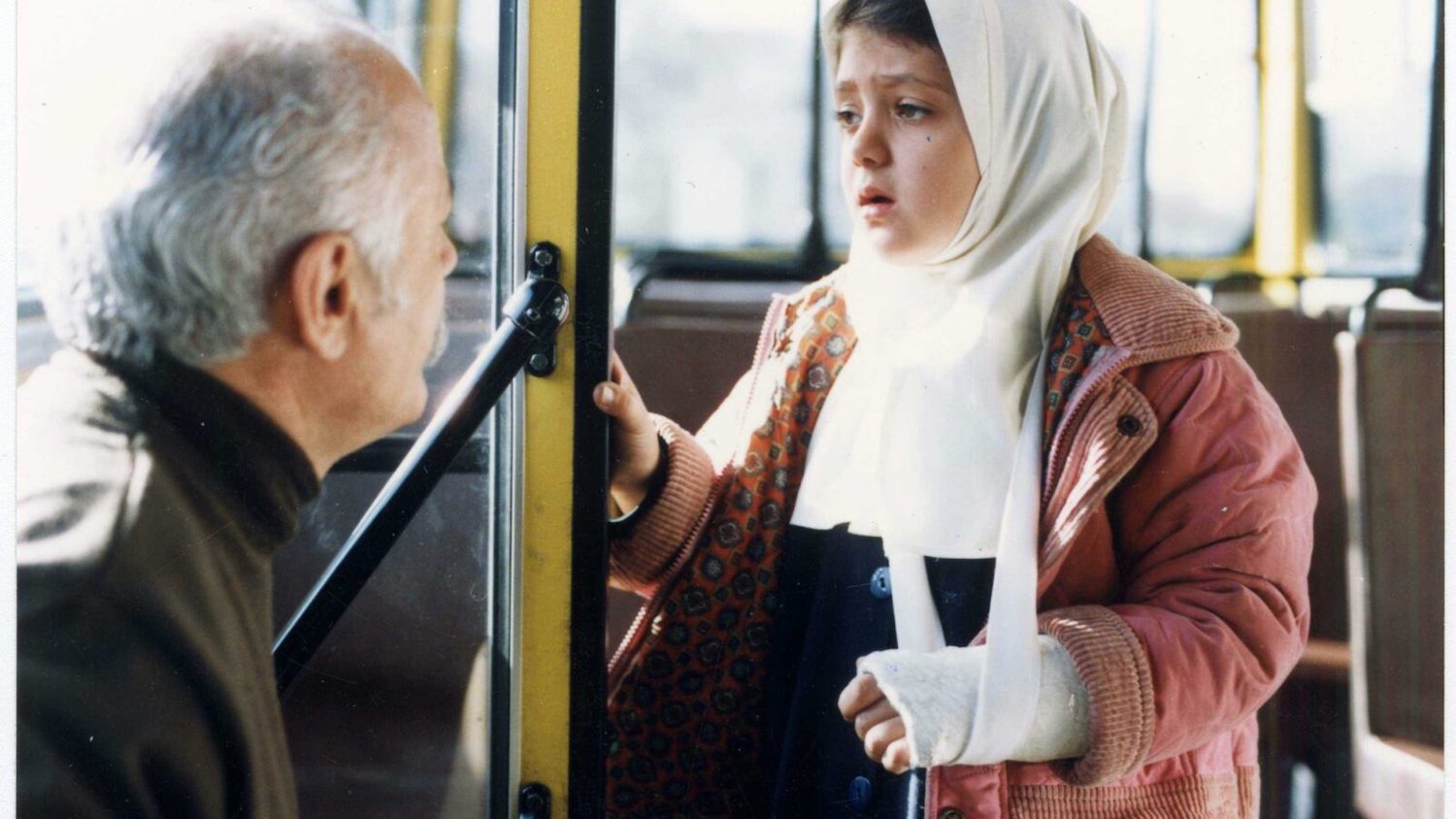
Women’s Lives Through the Eyes of a Child
Jafar Panahi is finally in Yerevan. After his travel ban was lifted in 2023, he’s been invited to the festival as a Guest of Honour. Three of his past works are on display: No Bears (2022), Offside (2006) and The Mirror (1997). I caught the last one.
The Mirror is a clever and perceptive work that appears devastatingly simple on the surface; an Italian neorealist pastiche by way of the hustle and bustle of Tehran. But even before its metafictional twist, Panahi, like the Italians, uses so-called documentary-like observation as a form of critique, mainly, women’s status amongst total patriarchy, as well as the ever-lingering threat of societal violence.
The opening shot is a doozy. School finishes for the day, the gates open, and tens of girls, all draped in their white first-grade headscarves, pile into the school bus or get picked up by their parents. The camera pans 360 degrees, across four crossings, before eventually leaving just one girl behind. Left alone by her mother, she has to find her way home.
With big eyes and chubby cheeks, Mina Mohammad Khani’s only-ever performance feels genuinely iconic.
Headstrong, smart, occasionally irritating yet perpetually charming, her desire to get home to her mother powers the whole movie, engaging with various bus and taxi drivers, policemen and old ladies on her epic journey.
It first appears we are in Bicycle Thieves (Vittorio De Sica, 1948) territory. Until Panahi pulls the rug in his characteristically humble yet entertaining fashion. I won’t spoil it, but it allows him to close the gap between performance and actor in really fascinating ways, interrogating if very young actors are ever truly playing a role when the lines between their real and fake selves feel all too similar.
Unexplained scenes of car crashes arrive with a sudden, yet nonchalant force, capturing the spectre of death on the edge of contemporary society. It’s complemented by the various conversations the girl overhears on the bus, women concerned about their husbands, their roles as mothers and wives, and their strained relationships with their children.
Working within the Iranian censorship regime, Panahi could ostensibly claim to be merely telling the story of a young girl searching for her mother. Yet within the meticulously observed frames — the film popping off the screen in a way his later digital works simply cannot match — the full complexity of Iranian life is carefully laid bare.
Redmond is the editor-in-chief of Journey Into Cinema.
